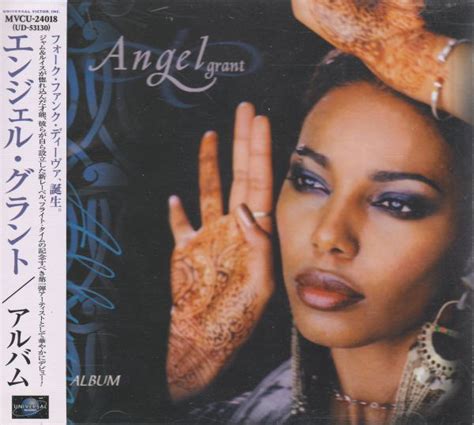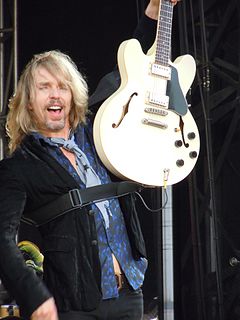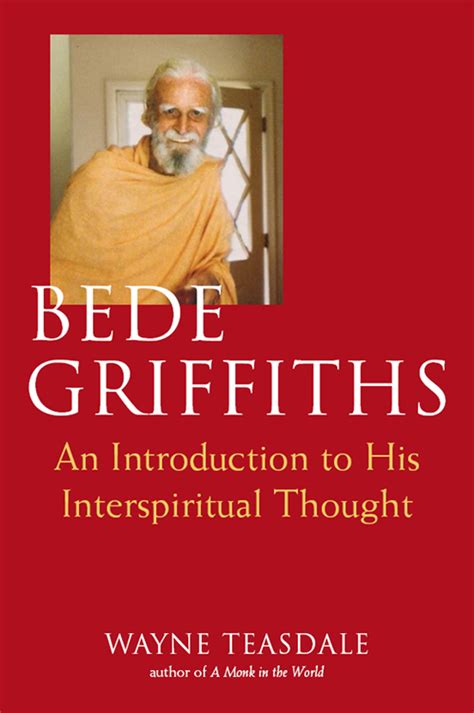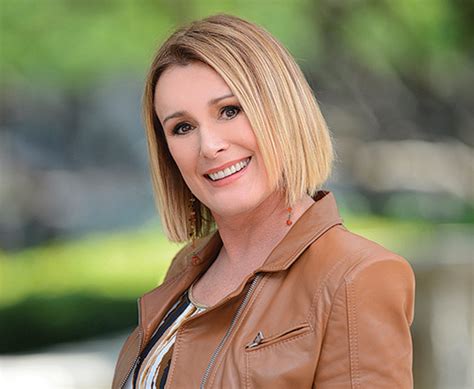A Quote by Angel Grant
We take drugs because we want to feel a sense of connection, and we seek God for the same reason. The search, no matter where it's directed - divine union or cocaine - begins with pain that comes from believing you're separate from love. The key is using spiritual practice to turn inward, toward awareness, which is what we actually are.
Related Quotes
If someone were to ask me whether I believed in God, or saw God, or had a particular relationship with God, I would reply that I don't separate God from my world in my thinking. I feel that God is everywhere. That's why I never feel separated from God or feel I must seek God, any more than a fish in the ocean feels it must seek water. In a sense, God is the "ocean" in which we live.
I believe that love is the main key to open the doors to the "growth" of man. Love and union with someone or something outside of oneself, union that allows one to put oneself into relationship with others, to feel one with others, without limiting the sense of integrity and independence. Love is a productive orientation for which it is essential that there be present at the same time: concern, responsibility, and respect for and knowledge of the object of the union.
When one begins to reflect on philosophy—then philosophy seems to us to be everything, like God, and love. It is a mystical, highly potent, penetrating idea—which ceaselessly drives us inward in all directions. The decision to do philosophy—to seek philosophy is the act of self-liberation—the thrust toward ourselves.
Tell everyone you know: "My happiness depends on me, so you're off the hook." And then demonstrate it. Be happy, no matter what they're doing. Practice feeling good, no matter what. And before you know it, you will not give anyone else responsibility for the way you feel-and then, you'll love them all. Because the only reason you don't love them, is because you're using them as your excuse to not feel good.
When we start out on a spiritual path we often have ideals we think we're supposed to live up to. We feel we're supposed to be better than we are in some way. But with this practice you take yourself completely as you are. Then ironically, taking in pain - breathing it in for yourself and all others in the same boat as you are heightens your awareness of exactly where you're stuck.
Our compassion is the fruit of our spiritual lives; it actually arises spontaneously when formed by intention in our spiritual practice. Love and compassion are always the goods of the spiritual journey, and they are guided by divine wisdom, which then shapes compassion in the concrete situations of our existence.
We live in a culture of quick fixes. We want to feel better and we want to feel better now. I believe that's why many turn to alcohol and drugs because they want to numb the pain of life. In my life I have a choice. I can sit with my depression and look at Jesus or I can sit with Jesus and look at my depression. What I mean by that is I can focus on what's broken and wonder where God is or I can sit in the companionship of Christ who suffered for us and worship him in the middle of the mess. That gives my pain meaning and context.
If you want to love, take the time to listen to your heart. In most ancient and wise cultures it is a regular practice for people to talk to their heart. There are rituals, stories, and meditative skills in every spiritual tradition that awaken the voice of the heart. To live wisely, this practice is essential, because our heart is the source of our connection to and intimacy with all of life. And life is love. This mysterious quality of love is all around us, as real as gravity... Yet how often we forget about love.
The recurring theme of all religions is a sympathy, empathy, connection, capacity between the human and the divine - that we were made for union with one another. They might express this through different rituals, doctrines, dogmas, or beliefs, but at the higher levels they're talking about the same goal. And the goal is always union with the divine.
Christianity exhorted man to set himself up against Nature, but did so in the name of his spiritual and disinterested attributes. Pragmatism exhorts him to do so in the name of his practical attributes. Formerly man was divine because he had been able to acquire the concept of justice, the idea of law, the sense of God; today he is divine because he has been able to create equipment which makes him the master of matter.
And when someone suggests you believe in a proposition, you must first examine it to see whether it is acceptable, because our reason was created by God, and whatever pleases our reason can but please divine reason, of which, for that matter, we know only what we infer from the processes of our own reason by analogy and often by negation.

































